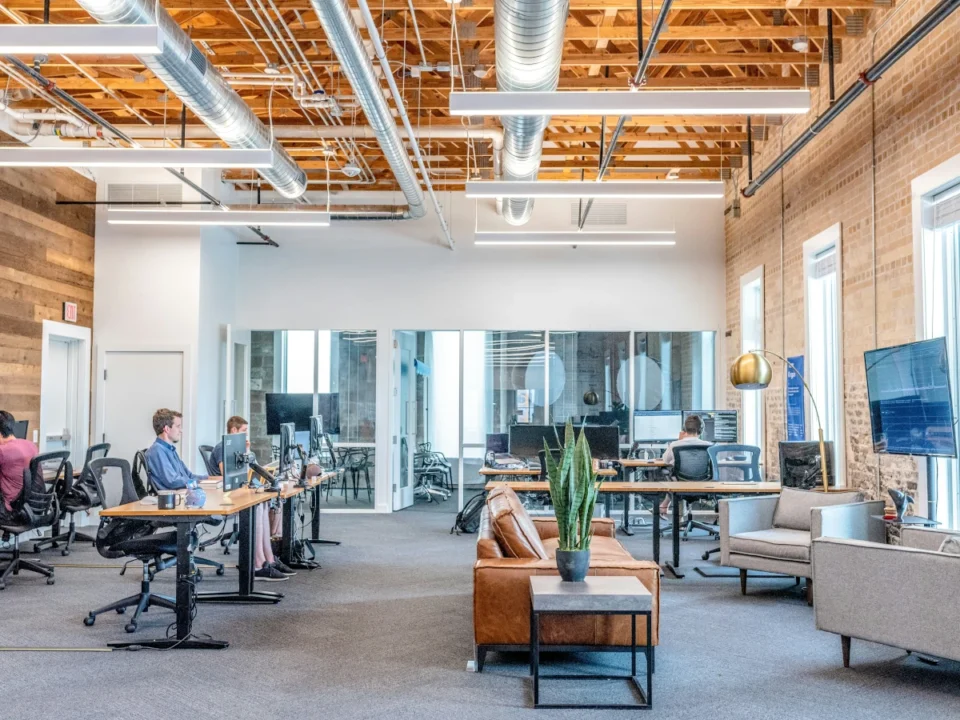Introduction
In today's rapidly evolving digital landscape, small businesses are continually faced with critical decisions regarding their IT infrastructure, particularly when it comes to server solutions, such as a small business server. The choice between a physical server and a cloud server can significantly impact a business's operational efficiency, cost structure, and scalability. As such, understanding the nuances of each option is crucial for business owners, tech enthusiasts, and engineers alike. This article provides a comprehensive comparison between physical servers and cloud servers, exploring their respective advantages and disadvantages while highlighting important factors to consider in making an informed decision.
Implementing a small business server can streamline operations and enhance productivity within a small organization. By selecting the right small business server, companies can optimize their IT resources effectively.

What is a Physical Server?
Definition of a Physical Server
A physical server, also known as a dedicated server, refers to a tangible piece of hardware that a business owns or leases. It is typically housed on-site, in the business's own data center or server room. Physical servers run operating systems and applications locally, enabling businesses to manage their data and services directly. This dedicated approach allows for full control over the hardware and software configurations, which can be tailored to meet specific business needs.
In the context of small business server options, understanding the impact of server choice plays a vital role in overall business performance.
Pros of Using a Physical Server
A small business server setup also allows for better data management, ensuring that critical information remains secure and easily accessible.
There are several advantages to using a physical server, particularly for small businesses with specific operational requirements. Firstly, physical servers can offer enhanced performance and speed, as they provide direct access to hardware resources without the latency associated with cloud services. This can be particularly beneficial for resource-intensive applications or databases.
Secondly, physical servers provide businesses with greater control over their data security. With sensitive information stored locally, companies can implement robust security measures tailored to their unique needs. This also minimizes compliance risks related to data protection regulations, as businesses can directly oversee their data management practices.
The upfront cost of a small business server should be carefully considered against the long-term benefits it can provide for operational efficiency.
However, physical servers come with their own set of challenges. One major disadvantage is the upfront cost, which includes not only the purchase of the server hardware itself but also the necessary infrastructure (such as cooling systems and power supply). This can be a significant financial burden for small businesses.
Cons of Using a Physical Server
Additionally, physical servers require ongoing maintenance and IT support. Businesses must manage software updates, hardware repairs, and troubleshooting, which can divert resources away from core business activities. This may necessitate hiring in-house IT staff or outsourcing to third-party service providers, further increasing costs.
Choosing a small business server can unlock various capabilities that support business growth and improve service delivery.

What is a Cloud Server?
With a small business server, organizations can ensure they have the necessary tools to adapt to changing business conditions.
Definition of a Cloud Server
A cloud server, in contrast, is a virtual server that runs on a cloud computing environment. Unlike physical servers, cloud servers are not bound to a specific location; they are hosted in data centers maintained by cloud service providers. This allows businesses to access their data and applications over the internet, benefiting from scalability and flexibility that physical servers cannot offer.
Pros of Using a Cloud Server
In summary, a small business server not only enhances performance but also adds significant value to the overall business strategy.
One of the most significant advantages of cloud servers is their cost-effectiveness. Small businesses can avoid hefty upfront investments in hardware, opting instead for pay-as-you-go pricing models that allow them to scale their usage according to their needs. This can be particularly advantageous for startups or businesses with fluctuating demands.
Moreover, cloud servers offer enhanced scalability. Businesses can easily upgrade or downgrade their server resources without the need for physical installations or complicated configurations. This flexibility enables organizations to respond quickly to changing market conditions or growth opportunities, ensuring that they remain competitive.
Ultimately, the right small business server can optimize service delivery and improve customer experiences.

Cons of Using a Cloud Server
Despite these benefits, cloud servers can have drawbacks. A major concern for many small businesses is data security. Since data is stored off-site and accessed over the internet, there is an inherent risk of data breaches or loss. Relying on third-party providers for data security can lead to potential compliance issues, especially for businesses handling sensitive information.
Additionally, cloud services may face downtime or outages, impacting business operations. Although reputable cloud providers have multiple redundancies in place, disruptions can still occur, and businesses must have contingency plans to mitigate the effects. Furthermore, ongoing costs can accumulate, making it essential for businesses to evaluate their cloud service usage to prevent unforeseen expenses.

Key Factors to Consider
Ultimately, a small business server represents a critical investment in a company's IT infrastructure and future.
Considering the growth potential, many organizations find that a small business server is an ideal solution for their evolving needs.
Cost
When evaluating server options, cost is a primary consideration. Physical servers require significant upfront investments, including the purchase of hardware and infrastructure. Businesses must also account for ongoing maintenance costs, which can include IT staff salaries, hardware replacements, and software licensing fees. In contrast, cloud servers operate on a subscription basis, allowing businesses to pay only for the resources they utilize. This can lead to more predictable budget management, especially for small businesses with limited financial resources.
Investing in a small business server is essential for scalability, enabling businesses to grow without the risk of outgrowing their IT infrastructure.
However, it's essential to conduct a thorough cost-benefit analysis, as the long-term expenses of cloud services can accumulate. Businesses should review their operational requirements and anticipated growth to determine which option provides the best overall value.
Security
Security is another critical factor when deciding between physical and cloud servers. Physical servers allow businesses to implement direct security measures tailored to their needs, including firewalls, encryption, and physical access controls. This can be particularly appealing for organizations that handle sensitive information, as they can maintain complete oversight of their data security practices.
The decision to implement a small business server should align with the organization's overall technology strategy and goals.
Scalability
Scalability is another vital consideration. Physical servers often necessitate extensive planning and investment when businesses experience growth or increased demand. Upgrading hardware can involve significant time and expense, potentially leading to operational delays. In contrast, cloud servers offer seamless scalability, allowing businesses to adjust their server resources quickly with minimal disruption. This flexibility can be a game-changer for small businesses navigating dynamic market conditions.
By properly evaluating needs, a small business server can be the foundation for a robust IT environment.
Moreover, cloud environments often provide businesses with access to cutting-edge technology. Cloud providers continuously update their infrastructure, ensuring clients benefit from the latest advancements without additional investments. This can enhance a business's competitiveness and operational efficiency.
Maintenance
For small businesses, evaluating a small business server's benefits can lead to more informed decisions regarding their IT solutions.
A well-planned small business server strategy can significantly improve operational workflows and data handling capabilities.
Maintenance is yet another area where the two server types diverge. Physical servers require ongoing maintenance, including hardware repairs, software updates, and troubleshooting, which can consume time and resources. These responsibilities may necessitate hiring dedicated IT staff or contracting with external IT service providers, placing additional financial strain on small businesses.
In contrast, cloud service providers typically handle maintenance and updates as part of their service agreements, allowing businesses to focus on core operations. This reduced burden can enable small businesses to allocate resources to growth initiatives, resulting in a more agile and responsive organization.
Understanding the differences between server types can help small business owners make the right choice when selecting their small business server.
Evaluating the security measures of a small business server can provide insight into the best option for safeguarding sensitive information.
TST’s Take
A Balanced View on Physical vs. Cloud Server
Hence, a small business server is an essential component for organizations looking to enhance their IT capabilities.
The decision between a physical server and a cloud server ultimately hinges on a business's unique needs, financial resources, and growth strategies. Each option has its strengths and weaknesses, making it essential for business owners to weigh the factors discussed earlier carefully. For instance, a company that prioritizes data control and security may lean toward physical servers, while another focused on scalability and cost-effectiveness may prefer cloud solutions.
The choice of investing in a small business server can ultimately contribute to a company’s long-term success and stability.
Additionally, hybrid models that combine both physical and cloud servers can be an appealing compromise for some businesses. This allows organizations to maintain sensitive data on physical servers while leveraging cloud resources for non-sensitive applications or data storage, creating a tailored infrastructure that meets specific operational needs. Ultimately, the goal should be to establish a server environment that supports business growth and enables efficient, secure operations.
For small businesses, leveraging the advantages of a small business server can lead to enhanced operational efficiency and performance.
Next Steps
Furthermore, understanding maintenance needs associated with a small business server can help mitigate potential issues down the line.
Call to Action for Small Businesses Considering Server Options
For small business owners contemplating their server options, it is crucial to conduct thorough research and evaluate both physical and cloud server solutions in light of their specific needs. Engaging with IT professionals or consulting firms may provide valuable insights into the most suitable options for your organization. By understanding the advantages and disadvantages of each approach, businesses can make informed decisions that align with their operational goals and budgetary constraints.
FAQs
1. What is the primary difference between physical servers and cloud servers?
The primary difference lies in their infrastructure and management. Physical servers are tangible hardware located on-site, providing direct control over data and security. In contrast, cloud servers are virtual and hosted off-site by third-party providers, offering flexibility and scalability.
2. Which option is more secure: physical servers or cloud servers?
Physical servers often provide greater control over security protocols, allowing businesses to implement tailored measures. However, reputable cloud providers typically offer robust security measures as part of their services. The decision depends on the specific needs and risk tolerance of the business.
3. How do costs compare between physical and cloud servers?
Physical servers require significant upfront investments in hardware and ongoing maintenance, which can be costly. Cloud servers typically follow a subscription model, allowing businesses to pay for only what they use, making them more cost-effective for many small businesses.
4. Can businesses use both physical and cloud servers simultaneously?
Yes, many businesses adopt a hybrid approach, utilizing both physical and cloud servers to balance control, security, and flexibility. This strategy enables organizations to optimize their IT infrastructure according to their specific needs.
5. What factors should a small business consider when choosing a server solution?
Key factors include cost, security, scalability, maintenance requirements, and the unique operational needs of the business. Conducting a thorough assessment of these factors will help in making an informed decision.




